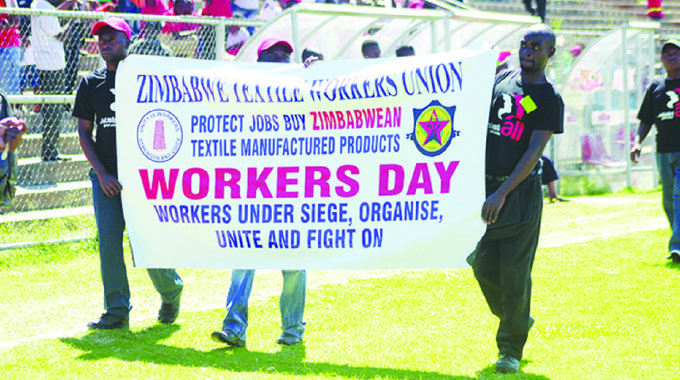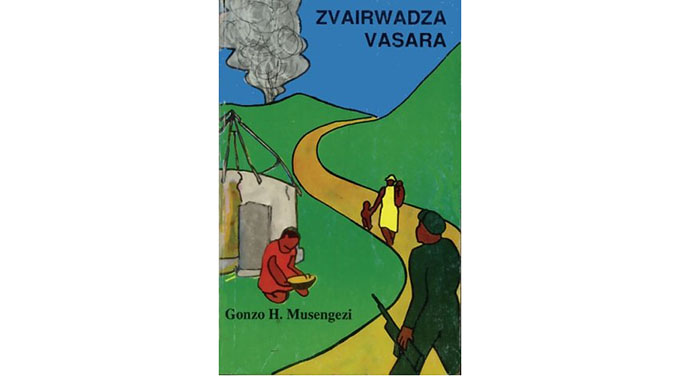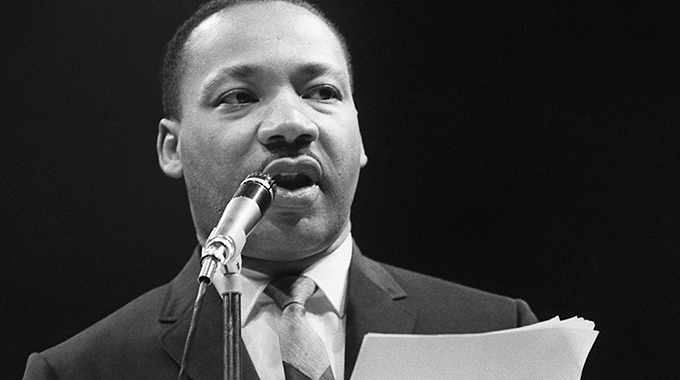Move over Santa, Independence Flame no orchid gift
Elliot Ziwira At The Bookstore
“The land is sacred! These words are at the core of our being. The land is our mother, the rivers our blood. Take away our land and we die. That is, the Indian in us dies. We’d become just the sun-tanned white men, the jetsam and flotsam of your great melting point,” so reasons Mary Brave Bird.
Nilene Omodele Adeoti Foxworth concurs in “Bury me in Africa” (1978): “A people without land are like cattle on naked ground with nothing to graze. They just mope around hopelessly.”
Yes, gentle citizen, friend, countryman, freedom is a fallacy if it doesn’t translate to ownership of the land; and it is the issue of the land that was central to the protracted liberation struggle, which gave us Independence as a sovereign country.
In truth, it is he that is fettered that cherishes the gift of freedom, but he who is free fantasises of the thrill of being chained.
The concept of freedom usually finds base in the hearts of those whose progenies lost arms and limbs in an attempt to wade away from the sinking ships of their dreams, yet remaining ensconced in the same aspirations that shape their destinies.
As we celebrate Independence Day tomorrow, let us remember that the freedom we so much cherish did not come on a silver platter.
Sons and daughters of a colonised people doomed to the periphery of life to eke out an existence on crumbs from the table of the alien gang from where the sun sets, sacrificed life, limb and mental Nirvana for the independence of the people of colour.
Our release from the clutches of colonial subjugation as enshrined in the Independence Flame, was never an orchid gift from Santa Claus in his many guises. It was a result of protracted struggle, which left in its wake abattoirs of broken hearts, strewn limbs, burning dreams and fragmented souls.
Among such sons and daughters who sacrificed their all for the Motherland, are Brigadier-General James Jotham Murozvi, who passed on on April 6 at the age of 60, and was befittingly interred at the National Heroes Acre on April 12, 2017; Alexander Kanengoni, who breathed his last on April 12, 2016 and was laid to rest on a hill reminiscent of the struggle, and in the womb of his farm — the land that he fought for; and Tichaona Freedom Nyamubaya, who departed on Sunday July 5, 2015 at the age of 57 and was buried on Saturday July 11, 2015. May their dear departed souls rest in eternal peace!
A perusal through our literary cache will expose the different ways in which the revolutionary zeal and ideology is depicted, and would be incomplete without Nyamubaya and Kanengoni’s immense contributions.
Like Kanengoni and Thomas Sukuti Bvuma, Nyamubaya falls under Generation Two of Zimbabwean writers, as categorised by Viet-Wild (1993).
The trio’s experiences in the liberation struggle demystify the notion of the guerilla fighter as an impregnable genius, who could disappear from the enemy’s canons and author his own epic.
Although the artistes exploit different genres, in their depiction of the war of liberation as dehumanising, disillusioning; psychologically and morally degrading, the way they vividly bring the horrendous nuances of the phenomenon to the fore, evokes sadness, ire and disgust.
Having fought in the liberation war, Nyamubaya realised that the enemy to universal freedoms is neither here nor there, but is embedded within; and is colour blind. The guerrilla writer shed her war regalia for the mighty pen, which culminated in the roar of a natural poetic instinct birthing “On the Road Again” (1986) and “Dusk of Dawn” (1995).
It dawned on her that the war never ends for the downtrodden, but it is only the weaponry and the antagonists that change.
Nyamubaya is contemptuous of the blatant exposure of brutality inherent in mankind which usually rears its ugly head during war times, in “That Special Place” (2003), as she relives her sojourns in Mozambique where the vulnerability of womanhood is laid bare.
There is something really traumatic about war that only those who never experienced it cherish. But to those who were part of the gory violence, the provoking hopelessness and the inevitable dementia of a traumatised soul, there is nothing glorious about war of any nature.
Nyamubaya highlights the other side of the guerilla fighter and the essence of culture in “Dusk of Dawn” (1995).
The book is a collection of short stories and poems based on the liberation struggle and its aftermaths. Though the defeatist tone pervading the short story “That Special Place” is also prevalent, especially in the poetry section, as reflected in the metaphorical title, the guerilla fighter is not portrayed as sadistic, implacable and brutal, but humane and fallible.
Indeed Freedom Tichaona Nyamubaya; an epitome of freedom, like all the other freedom fighters and revolutionaries of her time, has always been on the road for her people.
Now that the revolutionaries are “On the Road Again” in a new kind of war, their “Echoing Silences” will reverberate in a “Vicious Circle” in our hearts from “Dusk to Dawn”. Through his works Zanda, as he is affectionately known, for he is not dead, because artistes refuse to die lest their people call them traitors for dying on them, demonstrates that freedom and democracy are phenomenally multi-faceted.
“This is something you will undoubtedly find hard to understand. I have decided to respond to the call of the wilderness. It is the biggest decision I have had to take. It is the commitment without retreat.
Break the news gently to the family,” writes Tendai in Kanengoni’s “Vicious Circle” (1983),to his brother Noel when he decides that his Economics studies at university would be void if he and his people are not free from the labyrinthine snare of their existence in a world that believes that colonialism and Christianity are the best things that ever happened to Africa.
Passionate about his country, the land and the quest for freedom in its totality, Kanengoni remains steadfast in his conviction that patriotism is loyalty to the guiding principle that all men are equal, and that the land is all that we have as a people, so anything that jeopardises its distribution is akin to betrayal.
The Bookstore is richer through his titles; “Vicious Circle” (1983), “When the Rain Bird Cries” (1989), “Effortless Tears”, “Echoing Silences” (1997) and a short story “The Ugly Reflection in the Mirror” in “Writing Still” (2003) edited by Irene Staunton.
Kanengoni in “Echoing Silences” (1997), like Nyamubaya in “That special Place” (2003), and Bvuma in “Every Stone That Turns” (1999), uses characters drawn from the war-time and post war-time zones. But unlike Bvuma, he employs the metaphor of madness and the symbol of ghosts to express his disgust at the phenomenon known as war.
Using the protagonist, Munashe, who like Tendai in “Vicious Circle” (1983) abandons his university studies for the higher calling, the writer depicts war as dehumanising and deplorable.
In his eyes, war in any context; be it for liberation or otherwise, can never produce victors. Instead, only victims are strewn in its wake for it “is the greatest scourge of mankind”, which leaves “effortless tears” on the cheeks of the vilified, oppressed and downtrodden.
Like others of his ilk, Munashe suffers psychological breakdown during and after the war. The traumatic experiences of the war burden his psyche, which disengages his mental frame.
“Echoing Silences” highlights the profound suffering that the guerillas face at the architect of both the enemy’s and their own ranks. The sense of hopelessness pervading the novel is explored through Munashe, Sly, Kudzai, Bazooka and the section commander who was once a teacher.
All the other characters save for Munashe, could not survive the torture, hunger, killings and brutalities. Like all the others, he is a victim of circumstantial consequences as he finds himself ensnared. His only vent of escape becomes hallucination through drugs which reduces his life to a mere reverie.
Through-out the bloody war, “the routine killings, the unabated savagery and the dying”, he had always yearned for an opportunity to tell the Section Commander how “disillusioned he had become . . . ”
Kanengoni, debunks the notion of war as a vehicle that hoists the honey bird to a rich bee-hive by exposing how it creates victims, not only in the combatants, but the families left behind.
Munashe’s family suffers when he brings the ghosts of war to their doorsteps and subsequently dies; Tendai’s family in “Vicious Circle” suffers death, displacement and psychological breakdowns at the hands of the colonial apparatus as a consequence of his decision to join “thousands of others to bring back liberation and freedom”.
But because patriotism is a principle, and patriots are principled, Kanengoni, like Cde James Tichatonga, Nyamubaya and others of their flock — the veterans of the struggle — the heroes of our time — whose sacrifices glow in the Independence Flame — as depicted in his literary works, remained patriotic to the last rumbling echo of silence.







Comments